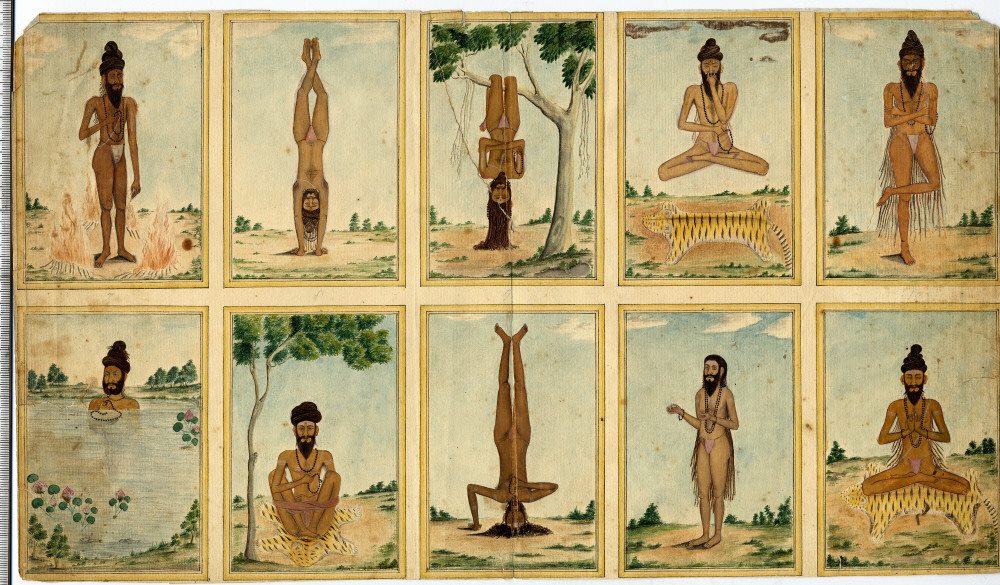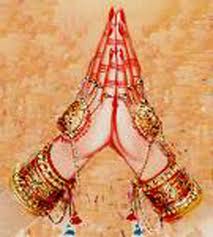India has a diverse culture, which is 5000 years old and is the oldest civilization in the world. A civilization, which had spread from Afghanistan, till North East frontiers of India and the vastness of the civilization, was attributed to its ever-evolving nature. This culture has maintained itself as unbroken continuity from Vedic times till to the present day, despite countless wars within the country, invasions from outside and two centuries of subjugation by the British. This indestructible unity and unbroken continuity of Indian culture are derived from its deep spiritual foundations. Swami Vivekananda had highlighted that every civilization or culture has a particular life-centre, a dominant characteristic or trend. According to him and the Vedas, the life-centre of Indian culture has been its spirituality, which means a way of life oriented to the ultimate purpose or goal of life, through the realization of the Supreme Spirit or God.
Inquiries into the mystery of life and existence were commenced in India by the ‘Rishis.’ They developed special techniques of transcending the senses and the ordinary mind, collectively called Yoga. The Rishis with help of these techniques they delved into the depths of consciousness and discovered important truths about the true nature of man and the universe by looking into the ‘atman’ or the soul. The ultimate discovery of the atman was termed as ‘moksha’, which meant the optimum level of satisfaction that an individual can attain from one’s life. Religion in ancient India meant a way of life, which enabled man to realize his true nature and attain moksha.

These basic tenets of the way of life in our ancient history are assimilated in the Vedas, the holy scriptures of our civilization which written in Sanskrit as per some estimates around 1500 BC. These Vedas were passed on to the rishis in the form of shrutis, and were further classified into 04 forms namely Rig Veda being the oldest Veda, Yajur Veda, Sama Veda and Atharva Veda. The Vedas not only gave a way of life but also gave vivid accounts such as political kingdoms and battles, development of astronomy and mathematics, cultural sophistication and spirituality. The political units during the Rigvedic or the early Vedic period comprised of Vish and Grama (village), and Jana. The rashtra (state) was governed by a Rajan (King) and he was known as Gopa (protector) and Samrat (supreme ruler). The king ruled with the consent and approval of the people and the duty of the king was to protect the tribe, in which he was assisted by Purohita (chaplain) and Senani (army chief).
In the socio- economic sphere, the concept of Varna and the rules of marriage evolved wherein the status of the Brahmanas and Kshatriyas increased greatly and social mobility was restricted. The proper pronunciation of verses became to be considered as essential for prosperity and success in war. Hence, the importance given to a Brahmin was attached to his study of the Vedas. In the case of the Kshatriya, they were the protectors of the “Rajya” or the state and were given honor and dignity because people believed in supremacy of India as a nation.
In the early Vedic age women enjoyed an honored place in the society where the wife was the mistress of the household and had authority over the slaves. In all religious ceremonies she participated with her husband and in the field of education, there was equality for girls. The Rig Veda mentions the names of some learned ladies like Viswavara, Apala and Ghosa who composed mantras and thereby attained stature of Rishis. Even the remarriage of widows was an acceptable norm in the Vedic age.
The Vedic culture established the ethos of what Indian values stood for apart from giving a political organisation and administration a Rajya, it presented us a way of life that is liberal where all other cultures and religions were embraced. Indian culture attracted travelers from all over the world to experience yoga and the feeling of unity with the Brahman or the universe. The Indian culture does not believe in the radical ideas of exclusion, it defines the role of a family and the love for parents, the power of a unit. Indian culture does not propagate the theory of superiority of one race over another or even the supremacy of a God per se. The culture is vast which is deeply rooted in the Vedic scriptures, which has kept the Indian civilization alive.
But sadly, the culture despite its beautiful nature of acceptance and power to unite has lost its relevance in today’s India. Despite the epitome of respect and unity that our cultural heritage is, we still choose to pick on the foreign impositions and accept them as our own. The value of Sanskrit as a language needs to be conserved, importance of yoga, respect for women, feeling of pride in the Armed Forces, honour of the Pandits (intellectuals), belief in the idea of India and most important respect of individuals has been lost in the turmoil that the our nation has undergone.

Attempts to revive this very culture are neglected and seen as radical impositions that are encroaching upon the freedom of the idea of India. We fail to embrace our identity primarily because we have not been shown or learnt the reality of our proud heritage. The warmth in our relations and euphoria in the celebrations make our country stand out distinctively in the global fraternity. Our country’s liveliness and generosity is evident with number of tourists who are attracted to its vibrancy, amalgamation of religions, festivals, food, art, crafts, dance, and music. Everything, from the culture and values to customs, rituals and traditions, is ‘special’ in this ‘Land of Gods’ which is inherently a peaceful, humble and a nation of moral values.
The sooner we wish to see what we stand for, the sooner we will stand as one.


great post
LikeLiked by 1 person
Well written. The article is well reasearched and reinforces a very valid no nation or society can achieve greatness based on a borrowed identity. T needs to first discover itself and be comfortable with its own identity
Sunil
LikeLiked by 1 person
On a personal note… the subject is very close to my heart. In spite of having inherited a strong & rich culture, we are moving away from it, and frittering it away mindlessly !!
But, I am sure, we shall slowly but surely see a re-discovery and a resurgence of our core strengths as a complete nation.
And part of this awakening will come through articles such as that written by you, Ananya.
My best wishes to you…. For your writing…. and your contribution to our society & culture. We require more of such wake-up calls !!
LikeLiked by 1 person
Thank you so much Sir. Means a lot.
LikeLike
Very well written. I would really like to read more on the Vedic culture with respect to women in society. In the current environment it’s ever more essential to highlight it and fix the wrongs.
LikeLiked by 1 person
Yes. I had the same thought as to why in later vedic age, the position of women deteriorated.
LikeLike
Appreciate your article:) simran.
LikeLike